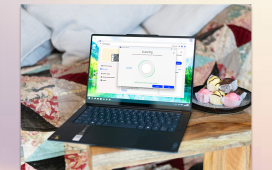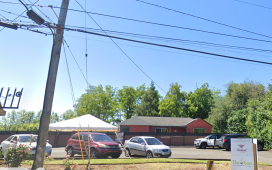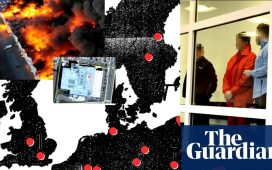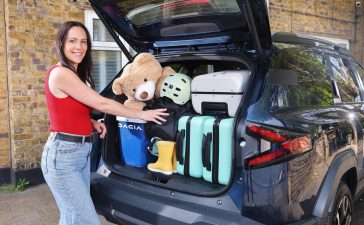The presence of highly trained security guards can de-escalate threatening situations and allay security fears.Supplied
The digital revolution that is changing the commercial real estate sector is moving cautiously when it comes to managing property security, experts say.
“There is growing interest in AI (artificial intelligence) as a tool for security firms that protect property,” says Michael Lyons, assistant general manager and director of sales at Tone-Gar Group of Companies, a security firm based in Kitchener, Ont. The company provides security services to commercial properties and special events to clients across the Greater Toronto Area and Southern Ontario.
“But you’ve still never heard of an AI unit or a robot making an arrest or de-escalating a situation the way a person might handle it,” Mr. Lyons says.
So, is the prediction that the workplace of the future will be run by robots, a watchdog and a human to feed the dog likely to happen?
“That does not necessarily hold true when it comes to security,” Mr. Lyons says.
Unlike designers and builders, who have embraced property technology (proptech) to plan and construct using AI-assisted software, security firms and managers are more cautious, he explains.
AI will only become more prevalent in property security when the costs come down and owners, managers and insurers are convinced that new technology is as effective in protecting against theft, intruders and vandalism as human beings are, he says.
“It’s important to distinguish between current technology, such as closed-circuit TV (CCTV), which is in use widely, and advanced technology such as AI and robotics,” he says.
“The insurance industry is interested in advanced technology as a deterrent and they may or may not offer a rate reduction,” says Mr. Lyons, who served as senior-vice president of design and construction for New York-based insurance giant Marsh McLennan for more than a decade.
“On the other hand, they look at a well-trained [human] security team as something they already know, an asset that can reduce violent incidents and theft. That affects rates,” Mr. Lyons says.
There’s a cost difference between AI-driven security coverage onsite versus remote service, for example. Beyond the insurance costs, there are also different operating costs for software, hardware, installation and maintenance, and operation, he adds.
“At the same time, security in commercial real estate is evolving across different asset types,” says Victoria Papp, senior director of strategy and information at BOMA Canada, an umbrella group for property owners and operators across Canada.
“In retail, we’re seeing the use of some AI-powered surveillance systems. These can monitor large areas with a high degree of accuracy and detect unusual behaviours, reduce theft and alert security staff to threats in real time,” she says.
Surveillance systems for commercial buildings and businesses can monitor large areas and detect unusual behaviours, reduce theft and alert security staff to threats in real time.Getty Images
Office buildings and industrial/commercial properties have advanced technologies, such as access control systems, using biometric authentication and smart ID cards that track the movements of people authorized to be in the building. Industrial sites have smart building systems that integrate fire safety, HVAC controls and security into one control room, so operators can monitor remotely and see several locations, she explains.
For now, technology in retail exists to support site safety and security but it’s less about AI and more about sensors and analytics that are leveraged by live, trained guards scanning surveillance streams to spot suspicious activity and investigate.
“Retail properties have been at the leading edge of the conversation about AI and security,” says Joseph Ogilvie, adjunct professor and chair of the OMERS & Oxford Leadership Institute in Real Assets at York University’s Schulich School of Business in Toronto.
Rates of shoplifting jumped 31 per cent in 2022 compared with 2021, according to Statistics Canada. Late last year, the Retail Council of Canada said some of its members are reporting a 300-per-cent increase in thefts since 2020, pegging the losses at $5-billion a year.
Human intuition, quick thinking and physical presence can make a critical difference.
— Victoria Papp, senior director of strategy and information, BOMA Canada
AI is useful not just for surveillance and theft prevention but also as a tool to help retailers understand who their customers are and what they’re shopping for, Prof. Ogilvie says, adding that there is a line between protecting a building or store and using AI to gather information surreptitiously.
“Some retail properties have had to walk back their use of AI,” he says. “There have been cases of properties using facial recognition, with consumer groups complaining that this invades personal privacy and they had to stop.”
One area where robotic surveillance can be helpful is for large events at properties such as concerts, open-air markets or pop-up stores, Ms. Papp says.
“AI can help in several ways make large events safer and more enjoyable – crowd management, emergency response, biometric access, smart ticketing and evacuation planning,” she says. “A good example of this is using real-time heat maps, generated by AI, to show areas of high crowd density. This can help security personnel manage and control the flow of people more effectively.”
Meanwhile, many commercial owners are deploying drones to guard their properties.
According to Proptia, a California-based security firm, these “flying guards” offer superior scope from the sky that traditional, land-locked cameras can’t match, as well as quicker response times.
“But using drones also means dealing with rules. From airspace regulations to privacy concerns, properties have to make sure they’re flying right by what the law says,” the company site states.
No matter how much AI and robotics move forward, for now the best security still involves human beings, Mr. Lyons says.
“We provide security for 10 health care facilities. The biggest skill we train our guards to have is the ability to make an intelligent decision, use judgment to de-escalate a situation and do it safely,” he says.
Ms. Papp agrees. “Human intuition, quick thinking and physical presence can make a critical difference.”










